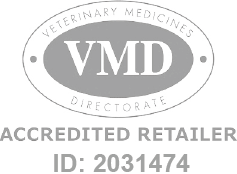Lungworm in Dogs: Symptoms, Treatment and Prevention

Lungworm in Dogs: Symptoms, Treatment and Prevention
Lungworm is a parasitic worm that poses a significant health risk to dogs. These pesky parasites can cause severe respiratory issues and other complications, so dog owners must be informed about lungworm, its symptoms, treatment options and prevention strategies. Here’s a straightforward guide to understanding lungworm and keeping your furry friend safe.
What is lungworm?
Lungworm, scientifically known as Angiostrongylus vasorum, primarily affects dogs and foxes. It’s a type of roundworm that lives in the blood vessels supplying the lungs and can travel to other parts of the body. Dogs can become infected by ingesting larvae commonly found in slugs, snails and frogs. Even drinking from puddles or eating grass contaminated with slug or snail slime can lead to infection.
Symptoms of lungworm
The symptoms of lungworm can be quite varied and sometimes mimic other illnesses, making it tricky to diagnose. Common symptoms to watch out for include:
- Coughing: A persistent, often dry cough is one of the most noticeable signs.
- Breathing difficulties: Rapid breathing, shortness of breath, or wheezing can indicate lungworm infection.
- Lethargy: Infected dogs may seem unusually tired or lack energy.
- Weight loss: Sudden and unexplained weight loss can be a red flag.
- Poor blood clotting: This can lead to excessive bleeding from minor wounds, nosebleeds or even internal bleeding.
- Changes in behaviour: Your dog might show signs of depression or anxiety or be less playful than usual.
- Digestive issues: Vomiting and diarrhoea can also occur, adding to the list of symptoms.

Treatment of lungworm
If you suspect your dog has lungworm, it’s vital to seek veterinary care immediately. Early diagnosis and treatment are crucial for a full recovery. Vets typically diagnose lungworm through blood tests, stool samples or X-rays.
Treatment usually involves antiparasitic medications that kill the worms. These medications are often given over several weeks, and in severe cases, hospitalisation might be necessary to manage symptoms and support the dog’s recovery. Your vet may also recommend additional treatments for secondary infections or complications, such as respiratory support or blood transfusions.
Prevention of lungworm
Prevention is the best strategy when it comes to lungworm. Here are some practical steps you can take to protect your dog.
- Regular worming: Use a vet-recommended deworming product that explicitly targets lungworm. Some monthly flea and tick treatments also protect against lungworm.
- Avoiding slugs and snails: Keep your garden tidy and remove any slugs or snails promptly. Consider using pet-safe slug repellents and avoid walking your dog in areas heavily populated by these creatures.
- Monitoring outdoor activities: Supervise your dog when they’re outside to prevent them from eating slugs, snails or contaminated grass.
- Fresh water supply: Always provide clean, fresh water for your dog. Avoid letting your dog drink from puddles, ponds or other stagnant water sources.
- Regular vet check-ups: Regular veterinary check-ups can help catch any health issues early, including lungworm.
Lungworm is a severe health threat to dogs, but with awareness and proactive measures, you can significantly reduce the risk of your dog becoming infected. Look for symptoms, seek immediate veterinary care if you suspect an infection, and follow preventive measures to keep your furry friend safe. Your vigilance can make all the difference in ensuring your dog’s health and happiness.
Remember, if you ever have any concerns about lungworm or your dog’s health in general, don’t hesitate to contact your vet. They’re there to help you keep your beloved pet healthy and thriving.








